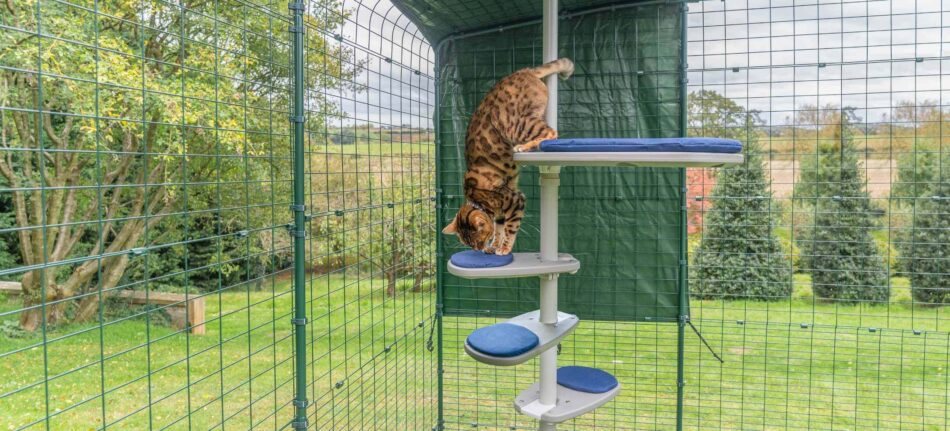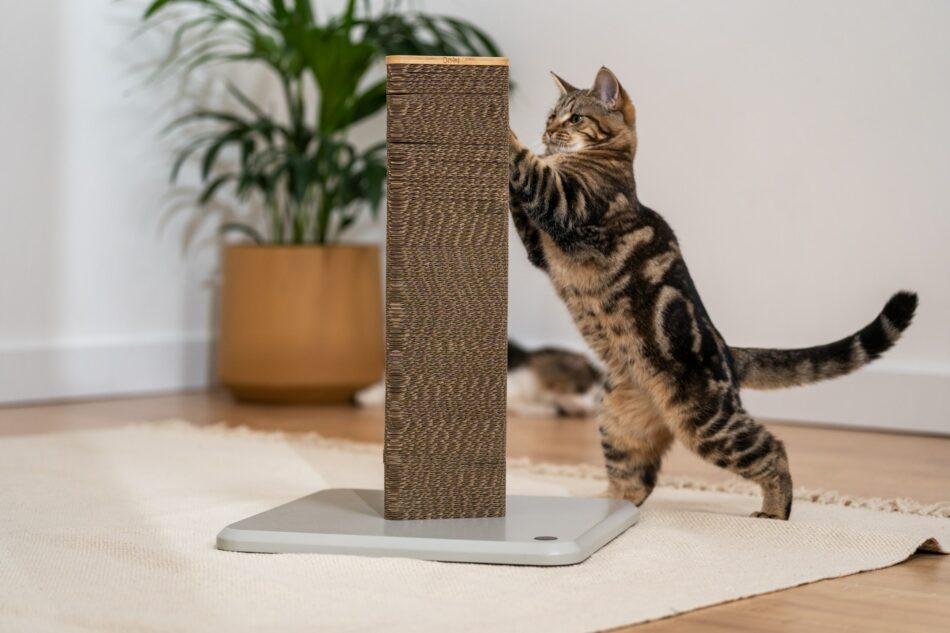Cats and wildlife in the garden
When it comes to wildlife in the garden, is your cat as ruthless as a raging lion or timid as a mouse? We might want to believe that our feline friend wouldn’t hurt a fly, but as descendants of their larger feline members of the family, cats are natural predators, whether we like it or not. But do all cats need or want to kill, and can you stop them from hunting? Sadly, the answer is no, despite spoiling them rotten or pampering their every need. Given the opportunity to go out and hunt, most cats will take it, purely because they have the animalistic instinct. So how can you make your cat’s interaction with wildlife in the garden safer?
Hunter or hunted?
Even the most cuddly and affectionate cats can resort to their hunting instincts, but they’re not always the predator…
Allowing your cat to roam freely in the great outdoors isn’t always the safest and because they’re solitary creatures, they will hunt alone. This makes them more vulnerable to attacks from larger predators such as dogs, foxes, mink, and raccoons, as well as getting into fights with other cats and more human threats like cars, poisoning or thieves.
As a predator, our cats can impose a huge threat to our wildlife and nature’s neighbours. Your kitty is capable of killing wild animals such as birds, reptiles, and small mammals and while they don’t always bring the kill home, there is every chance they’ve already been consumed.
Hunting and hunger
Hunting is not solely motivated by hunger but the way you feed your cat will certainly make a difference to how they hunt. Cats are opportunistic hunters and know that if they were to hunt only when hungry, they could risk starvation, purely because capturing prey isn’t always successful and isn’t always available. Today, cats have evolved to change their daily patterns depending on the food that is available to them.
Ultimately, whether they’re hungry or not, hunting is an instinctual behaviour. The average well-fed pet cat partakes in approximately 3 hours of hunting each day, whereas a cat that is fed less will hunt more, so it’s important to feed your cat at regular intervals throughout the day to mimic their natural feeding patterns. They’ll also benefit from a meal rich in meat content.
Cat safety
To avoid the hunting impact that your cat has on the local wildlife and protect them from predators and human dangers, we designed the Omlet Catio. Finally, cats can play safely in the fresh air! The Omlet Catio can be extended and adapted at any time to suit your cat and space and if you don’t have a large garden, no problem. If your cat does spend a lot of time outdoors and you’re concerned about wildlife and your cat’s hunting habits, there are a few things that can help.
More time to play
Similar to their food patterns, the way cats play can affect how they behave in the wild. Regularly play with your cat and offer them cat toys that resemble prey. We’ve all seen the way cats crouch down ready to pounce on a scrunched-up ball of newspaper. If your cat doesn’t go out and is purely an indoor cat, don’t worry, you are not depriving them of their ancestral hunting heritage. Hunting doesn’t necessarily mean killing prey, which is why it can be adapted to play.
You can also introduce a cat scratching post for some extra brain stimulation. The Omlet Stak cat scratching post is perfect for cats plus the environment, made with durable cardboard that can withstand endless scratching sessions. Entertain your cat’s curious mind and hunter instinct rather than try and diminish it.
When not to hunt
Try to avoid dawn and dusk, prime hunting times. However, remember that changing a cat’s routine needs to be done slowly to ensure it’s not having a negative impact on the cat.
Cats need variety
Cats are neophiliac, which means they absolutely love variety – especially when it comes to food. Regularly providing different foods may curb their hunting behaviour as they don’t need to look elsewhere for new tasty treats.
Sound the alarm
Adding a bell to the collar is certainly one way to alert prey that danger is coming, however, cats are incredibly intelligent. Just be mindful that while this may seem to work to start with, your cat might find a way to master this new skill of getting close without making a noise.
Omlet and your cat’s hunting
Omlet can’t stop your cat’s hunting but with products like the super secure Catio and Stak cat scratcher to keep them entertained for hours, your feline friend’s habit can be much safer for both them and wildlife.
This entry was posted in Cats

